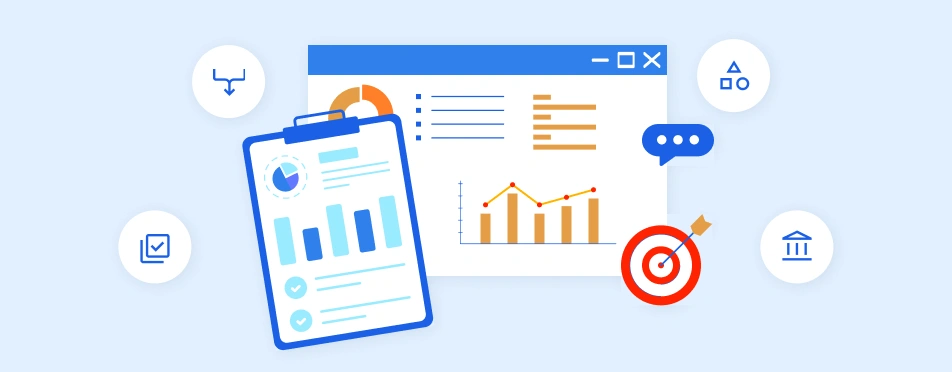 ×
×
Complete Business Intelligence (BI) Checklist for Successful Implementation: Free Download
In modern analytics consulting, client dashboards are far more than visual aids. They are daily decision systems that guide marketing spend, inventory levels, and multimillion‑dollar investments. Expectations are unforgiving: a single mishandled null, silent field rename, or overlooked row‑count mismatch can undo months of relationship‑building and trigger costly escalations. Across the industry, leaders report the same pattern: frontline teams rush to meet aggressive timelines, quality checks become person‑dependent, and senior managers burn the midnight oil in crisis huddles, tracing data errors that should never have left development. This is a common risk across data visualization and dashboards, regardless of the BI platform used.
Key Sections of the Business Intelligence Checklist
What consulting firms need is not another heroic bug‑fix but a repeatable, audit‑ready quality‑assurance framework that works regardless of client size, technology stack, or delivery cadence. Enter the Business‑Intelligence Checklist—a comprehensive set of controls that spans every phase of dashboard development. From defining authoritative sources of truth and documenting null‑handling rules to validating KPIs through granular data cuts, the checklist embeds best practices into a single, easy‑to‑adopt template. Whether teams deploy on Tableau Cloud, Power BI Service, or both, these checkpoints transform QA from an afterthought into a built‑in safeguard, allowing consultants to deliver dashboards clients can trust from day one. Understanding the difference between Power BI and Tableau or comparing Power BI visualization vs Tableau features can further help teams select the right stack for their clients’ unique needs. The Business Intelligence checklist is organized into four key sections, each addressing a critical phase of dashboard development:

Managerial Inputs
- Establishes the foundation before development begins
- Define project criticality and sign off on the authoritative source of truth
- Document null‑handling rules, KPI logic, and wireframes
- Record scope trade‑offs driven by budget constraints
Data‑Validation Cuts
- Heart of the QA process
- Perform row‑count and KPI checks at multiple granularities (totals, time slices, source‑system filters, etc.) to catch discrepancies high‑level totals miss
Pre‑Deployment Build Review
- Ensures technical hygiene
- Verify correct tables and field‑naming conventions
- Flag and resolve any ad‑hoc renames
- Maintain consistency for easier long‑term maintenance
Deployment & Governance
- Guarantees smooth rollout and ongoing management
- Validate user permissions and Row‑Level Security (RLS)
- Confirm stakeholder communication and update documentation
Who Will Benefit from This Checklist

Dashboard Developers

Business Analysts

Data Engineers Team

QA Teams Analytics

BI Consultants Group
Conclusion
By implementing a robust checklist, emphasizing granular validation, and fostering a culture of shared responsibility, you can significantly improve the accuracy of your dashboards and confidently approach that 99% target. Whether your team uses Power BI Tableau integrations or compares features across Tableau and Power BI, consistency in quality checks remains key. Remember that while perfection is elusive, a commitment to rigorous processes and transparent communication will build trust in your data and empower better decision-making.

